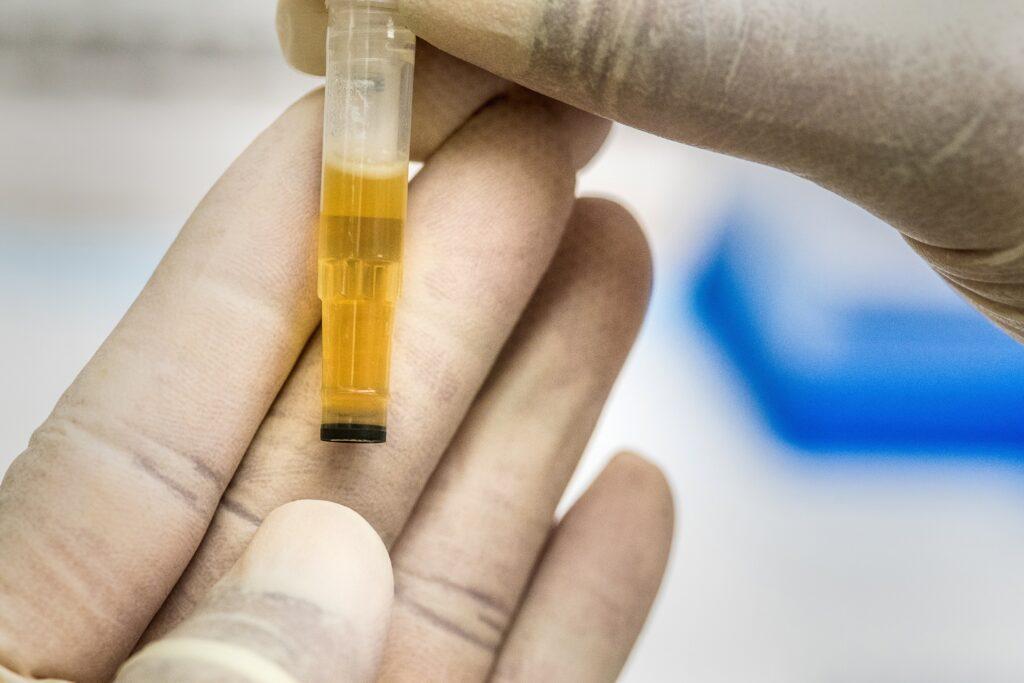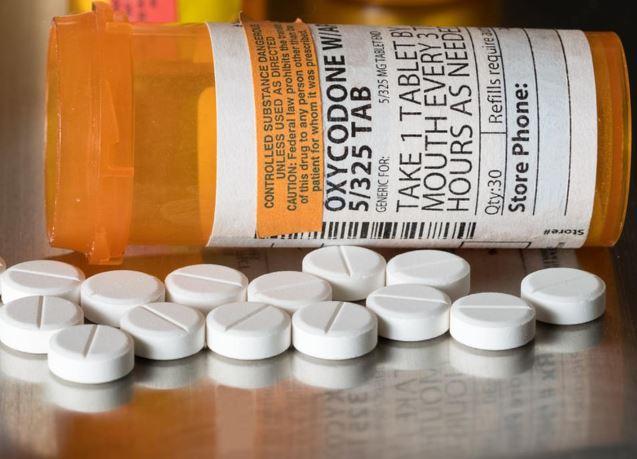How Long Does Oxycodone Stay in Urine?
Oxycodone is a powerful painkiller commonly used to manage moderate to severe pain. It is a member of the opioid family of drugs known for its strong pain-relieving effects. However, using oxycodone can also lead to addiction and other health problems. One of the ways that oxycodone use can be detected is through urine drug testing.
The amount of time that oxycodone stays in urine can vary depending on several factors, including the individual’s metabolism, the dose of the drug taken, the frequency of use, and the individual’s overall health. Generally, oxycodone can be detected in urine for up to three days after the last use, although this can vary depending on the abovementioned factors.
It is important to note that urine drug testing is not always a reliable indicator of drug use. While it can be useful in detecting recent drug use, it does not necessarily indicate whether an individual is addicted to the drug or has a problem with substance abuse. Additionally, the presence of oxycodone in urine does not necessarily indicate that an individual is currently under the influence of the drug, as it can remain in the body for some time after the effects wear off.
If you are concerned about oxycodone use or addiction, speaking with a healthcare professional or specialist is important. They can provide guidance and support on managing the issue and working towards recovery. In addition to seeking professional help, individuals can also reduce the risk of developing an addiction to oxycodone or other opioids, such as only taking the drug as prescribed, following the recommended dosages, and not sharing the drug with others.
In conclusion, oxycodone in urine can be detected up to three days after use. However, urine drug testing is not always a reliable indicator of drug use or addiction. Individuals concerned about using oxycodone should speak with a healthcare professional or addiction specialist for guidance and support.
Most Popular How Long Does Oxycodone Stay in Urine Related FAQs
-
How Long Does Oxycodone Stay In Your Urine in terms of days?
Oxycodone can be detected in urine for up to three days after use. However, this can vary depending on factors such as the individual’s metabolism, the dose of the drug taken, the frequency of use, and the individual’s overall health.
-
How to Get Rid of Oxycodone In Urine?
There is no guaranteed way to get rid of oxycodone in urine quickly. However, some steps that may help include staying hydrated and drinking plenty of water, urinating frequently, and engaging in physical activity, as exercise can help to speed up the metabolism and elimination drugs from the body.
It is important to note that diluting urine with excessive water intake or other methods can lead to inaccurate drug test results and should be avoided. If you are concerned about oxycodone use or addiction, you must consult a healthcare professional or specialist for guidance and support.

Skip To:
Learn More:
Get Help. Get Better. Get Your Life Back.
Searching for Accredited Drug and Alcohol Rehab Centers Near You?
Even if you have failed previously and relapsed, or are in the middle of a difficult crisis, we stand ready to support you. Our trusted behavioral health specialists will not give up on you. When you feel ready or just want someone to speak to about therapy alternatives to change your life call us. Even if we cannot assist you, we will lead you to wherever you can get support. There is no obligation. Call our hotline today.
(844) 597-1011Oxycodone Drug Facts
Oxycodone Overview
Oxycodone is a potent opioid painkiller that can lead to physical dependence with prolonged use. Symptoms of oxycodone withdrawal, such as muscle aches, nausea, anxiety, and insomnia, can occur when individuals stop taking the drug.
The duration of oxycodone withdrawal can vary, but generally, acute symptoms can last up to a week, and protracted symptoms can last for several weeks or months. Seeking professional help to manage withdrawal symptoms and prevent complications is essential.
Medical detoxification is often recommended as the safest way to withdraw from oxycodone. In short, it’s crucial to know the potential symptoms of oxycodone withdrawal and seek professional help.
How Long Is Oxycodone Withdrawal?
The duration of oxycodone withdrawal can vary depending on several factors, including the duration and intensity of oxycodone use, the individual’s overall health, and co-occurring medical or mental health conditions.
Generally, acute symptoms can last up to a week, and protracted symptoms can last for several weeks or even months.
However, the oxycontin withdrawal symptoms duration can vary for each person. Seeking professional medical help to manage withdrawal symptoms and prevent complications is recommended.
Symptoms Of Withdrawal From Oxycodone
Withdrawal symptoms of oxycodone can include both physical and psychological symptoms. Some of the physical symptoms can include:
- Muscle aches.
- Sweating.
- Nausea.
- Vomiting.
- Diarrhea.
- Dilated pupils.
- Rapid heartbeat.
- Runny nose and sneezing.
- Tremors or shaking.
- Fever or chills.
- Insomnia or other sleep disturbances.
Some of the psychological symptoms can include:
- Anxiety.
- Depression.
- Irritability.
- Restlessness.
- Cravings for oxycodone.
- Difficulty concentrating or thinking clearly.
- Fatigue or lack of energy.
The severity of withdrawal symptoms of oxycontin can vary depending on several factors, including the duration and intensity of oxycodone use, the individual’s overall health, and co-occurring medical or mental health conditions.
Seeking professional medical help to manage withdrawal symptoms and prevent complications is recommended.
Oxycodone Abuse Statistics
Oxycodone is a potent prescription painkiller widely used in the United States. However, its high potential for abuse and addiction has increased concern about its misuse. In this section, we will explore some key oxycodone abuse statistics to understand better the problem’s scope and impact on individuals and communities.
10.1 million
An estimated 10.1 million people aged 12 or older misused opioids, including oxycodone, in the past year in the United States.
Source: NSDUH
14,926
Opioid overdose deaths involving prescription opioids, including oxycodone, increased from 3,442 in 1999 to 14,926 in 2018.
Source: NIDA
3.9%
In 2019, the rate of opioid overdose deaths involving prescription opioids was 3.9% per 100,000 population.
Source: CDC

Get Your Life Back
Find Hope & Recovery. Get Safe Comfortable Detox, Addiction Rehab & Dual Diagnosis High-Quality Care.
Hotline(844) 597-1011How Long Is Oxycodone In Urine?

Oxycodone In Urine Test
Oxycodone can be detected in urine for up to three days after use. The length of time that oxycodone remains in urine can vary depending on various factors, such as the individual’s metabolism, the dose of the drug taken, the frequency of use, and the individual’s overall health.
Urine drug tests are commonly used to detect the presence of oxycodone in urine. These tests identify the drug’s metabolites excreted in the urine after the body processes it. These metabolites can be detected for a period of time after the last use of the drug, making urine drug tests an effective way to monitor oxycodone use.
It is important to note that urine drug tests are not always a reliable indicator of addiction or substance abuse, and the presence of oxycodone in urine does not necessarily indicate that an individual is currently under the influence of the drug. If you are concerned about oxycodone use or addiction, consult a healthcare professional or specialist for guidance and support.
First-class Facilities & Amenities
World-class High-Quality Addiction & Mental Health Rehabilitation Treatment
Rehab Centers TourRenowned Addiction Centers. Serene Private Facilities. Inpatient rehab programs vary.
Addiction Helpline(844) 597-1011Proven recovery success experience, backed by a Team w/ History of:
15+
Years of Unified Experience
100s
5-Star Reviews Across Our Centers
10K
Recovery Success Stories Across Our Network
- Low Patient to Therapist Ratio
- Onsite Medical Detox Center
- Comprehensive Dual-Diagnosis Treatment
- Complimentary Family & Alumni Programs
- Coaching, Recovery & Personal Development Events
What is an Oxycodone Urine Test?
An oxycodone urine test is a type of drug test used to detect the presence of oxycodone in a person’s urine. This test identifies the metabolites of oxycodone that are excreted in the urine after the body processes the drug.
There are several reasons why an oxycodone urine test may be conducted. For example, it may be used as part of a workplace drug testing program, as a condition of probation or parole, or as part of a medical evaluation to monitor medication adherence or detect drug misuse.
The test typically involves collecting a urine sample from the individual and sending it to a laboratory for analysis. In some cases, a point-of-care test may be used, which allows for rapid, on-site detection of oxycodone in urine.

It is important to note that oxycodone urine tests are not always a reliable indicator of addiction or substance abuse. The presence of oxycodone in urine does not necessarily indicate that an individual is currently under the influence of the drug. If you are concerned about oxycodone use or addiction, you must consult a healthcare professional or specialist for guidance and support.
World-class, Accredited, 5-Star Reviewed, Effective Addiction & Mental Health Programs. Complete Behavioral Health Inpatient Rehab, Detox plus Co-occuring Disorders Therapy.
CALL(844) 597-1011End the Addiction Pain. End the Emotional Rollercoaster. Get Your Life Back. Start Drug, Alcohol & Dual Diagnosis Mental Health Treatment Now. Get Free No-obligation Guidance by Substance Abuse Specialists Who Understand Addiction & Mental Health Recovery & Know How to Help.
We Level Up Oxycodone Addiction Dual Diagnosis Treatment
The definition of dual diagnosis (also referred to as co-occurring disorders) can differ between institutions. However, it is generally described as the specific treatment of someone diagnosed with a substance use disorder and a mental health disorder simultaneously. Treating dual-diagnosis clients is a critical aspect of our inpatient treatment experience because co-occurring disorders are strongly correlated with instances of substance abuse.
Creating a treatment plan that addresses the physical aspects of withdrawal, the psychological connection with drug use, and managing underlying mental health disorders is part of setting clients up for success. A thorough mental health analysis identifies possibilities for treatment. Meeting with mental health counselors and medical care providers means access to behavioral therapy and medication treatment. At our dual diagnosis treatment center, We Level Up can implement the highest quality of care.
We recognize the fragile complexities of how mental and substance abuse disorders can influence others and sometimes result in a vicious cycle of addiction. That’s why we offer specialized treatment in dual-diagnosis cases to provide the most excellent chance of true healing and long-lasting recovery.
Accepting that you may be living with a mental illness can be challenging. However, treating the presenting substance abuse case can be magnitudes easier once properly diagnosed and treated. Only a properly trained medical professional can diagnose these underlying conditions. If you believe you are suffering from a disorder alongside addiction, we urge you to seek a qualified treatment center to begin your journey to recovery. Call We Level Up today.
Experience Transformative Recovery at We Level Up Treatment Centers.
See our authentic success stories. Get inspired. Get the help you deserve.
Start a New Life
Begin with a free call to an addiction & behavioral health treatment advisor. Learn more about our dual-diagnosis programs. The We Level Up Treatment Center Network delivers recovery programs that vary by each treatment facility. Call to learn more.
- Personalized Care
- Caring Accountable Staff
- World-class Amenities
- Licensed & Accredited
- Renowned w/ 100s 5-Star Reviews
We’ll Call You
Oxycodone Addiction Informative Video
Ryan’s Recovery From Fentanyl, Heroin, & Oxycontin Addiction
“Today I am free from drugs. I live by myself in an apartment that I can afford. I can, ya know, My family talks to me when I go home for vacation. I’m welcomed and looked up to by all my friends back home who are still using or who want to be clean today. I get to do whatever I want, travel wherever I want, and not have to have something in my pocket to make sure that I can get through without being sick.”
Ryan’s Addiction Recovery Story
Search We Level Up How Long Does Oxycodone Stay in Urine? Resources
Sources
- National Institute on Drug Abuse – https://www.drugabuse.gov/drug-topics/opioids/opioid-overdose-crisis
- Substance Abuse and Mental Health Services Administration – https://www.samhsa.gov/
- Centers for Disease Control and Prevention – https://www.cdc.gov/drugoverdose/index.html
- National Institutes of Health – https://www.nih.gov/
- Food and Drug Administration – https://www.fda.gov/drugs/information-drug-class/opioid-medications
- Department of Health and Human Services – https://www.hhs.gov/
- National Council for Behavioral Health – https://www.thenationalcouncil.org/topics/substance-use-disorders/
- Office of National Drug Control Policy – https://www.whitehouse.gov/ondcp/
- U.S. Department of Justice – https://www.justice.gov/
- U.S. Department of Veterans Affairs – https://www.mentalhealth.va.gov/opioid-safety/


